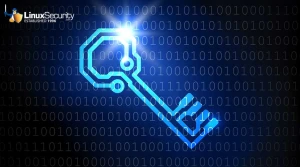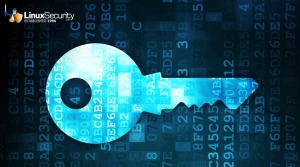Charting the Course of Cybersecurity Education for Linux Admins

Linux administrators and infosec professionals face rising cyber threats in today's interconnected digital world. As open-source platforms gain more importance, securing them becomes mission-critical for organizations worldwide.
This article explores the advantages of Cybersecurity Education Programs, focusing on Graduate Certificates in Cybersecurity and how they can transform the careers of Linux admins, infosec professionals, and open-source developers. Gain insights into cybersecurity aspects, job outlook, career possibilities, and why to embrace this exciting field.
What is Cybersecurity?
Cybersecurity refers to the collective measures to safeguard digital infrastructure, information, and systems from unauthorized exploitation. In our digital era, robust cybersecurity measures are paramount as daily activities—from business to personal communication—increasingly depend on secure digital services.
Rising to the Challenge
With cyber threats evolving in sophistication, staying ahead of potential attacks is essential through continuous vigilance. Techniques such as malware, phishing, and advanced persistent threats represent a constant battleground, and the ubiquity of open-source platforms like Linux requires careful security governance despite their benefits for innovation and collaboration.
Education and Preparedness
Educational institutions have crafted specialized cybersecurity curriculums to combat these issues. These courses empower professionals with vital cyber defense, threat intelligence, and risk assessment knowledge.
What Are the Benefits of Cybersecurity Awareness Training?
Cybersecurity awareness training is critical in reinforcing an organization's defense mechanisms. This education is essential for understanding the ever-changing landscape of cyber threats and for arming individuals with the skills necessary to identify and counteract security risks. Consistent training equips employees to notice phishing attempts or unusual network behavior, making them vital in protecting sensitive data.
Specialized Training for Linux and Security Experts
For those navigating the technicalities of Linux and information security, specialized cybersecurity training becomes even more crucial. Participants delve into Linux-specific security issues, mastering how to formulate robust security strategies and remediate vulnerabilities. Proficiency in practices such as SSH key management, kernel hardening, and managing access rights take precedence.
Advanced training modules enhance their capacity for threat analysis, emergency handling, and conducting post-incident investigations, empowering them to confront cyber adversaries proactively and shield their organization's digital groundwork.
What Is the Job Outlook for Cybersecurity?
As the landscape of cyber threats intensifies, the demand for qualified cybersecurity professionals escalates. This surge has engendered a thriving job market, with a particularly acute need for Linux security experts amid the pervasive integration of open-source technologies in corporate ecosystems. Industry forecasts elucidate this expansion within the cybersecurity employment sector, anticipating a staggering deficit of 3.5 million roles globally by 2025.
Market Trends and Employment Projections
The clamor for cybersecurity talent exhibits pronounced variability across regions, with North America, the Asia-Pacific corridor, and Europe at the forefront of cybersecurity hiring trends. This upswing is markedly observable in sectors—including finance, healthcare, and governmental agencies—prioritizing safeguarding critical and sensitive data against the incessant menace of cyber malfeasance.
Vulnerable Industries and Cybersecurity Importance
Furthermore, the retail and technological domains underscore the importance of robust cyber defenses, given their extensive consumer databases and dependence on digital conduits for commercial activity. These trends lay down a compelling narrative: proficiency in cybersecurity offers a secure professional trajectory and is increasingly becoming a linchpin in the operational integrity of diverse industrial verticals.
The Future of Cybersecurity Employment
As enterprises persist in elevating cybersecurity to a strategic priority, the prospects for adept individuals in this sphere are poised to burgeon. The burgeoning opportunities manifest not solely within established tech hubs but are proliferating throughout burgeoning markets, energetically digitizing their foundational infrastructures.
Career Possibilities with a Graduate Certificate in Cybersecurity
The attainment of a Graduate Certificate in Cybersecurity signifies unlocking a treasure trove of career prospects for information security aficionados and Linux system savants. Such a credential signals to employers a preparedness for specialized roles, from Information Security Analysts and Cybersecurity Consultants to Incident Responders and Vulnerability Assessors. Linux experts, in particular, can aspire to titles such as Linux System Engineer or Security Architect, with a penchant for open-source ecosystems.
Industry Demand for Certified Professionals
This qualification opens myriad doors across industries, with the finance, healthcare, government, and technology sectors leading recruitment to bolster their cyber fortresses. Retail giants and telecom behemoths, laden with massive caches of customer information, are equally zealous in their search for guardians of their digital dominions.
The Necessity of Lifelong Learning
With the cyber threat landscape in perpetual flux, those who seek longevity in their cybersecurity careers must commit to ongoing education. Through continuous learning—certificates, seminars, and e-courses—professionals maintain their edge against cyberspace adversaries. For Linux aficionados, staying current is crucial as demand for their skills continues to escalate in an open-source-preferred world.
What Can You Do with an Online Graduate Certificate in Cybersecurity?
 An Online Graduate Certificate in Cybersecurity presents a flexible solution for professionals aiming to fortify their cybersecurity expertise. These programs are designed to accommodate working individuals' unpredictable schedules, granting access to vital learning resources around the clock. This liberty to manage educational pursuits alongside personal and professional commitments exemplifies the transformative potential of modern digital platforms, ensuring a more inclusive and adaptive learning experience.
An Online Graduate Certificate in Cybersecurity presents a flexible solution for professionals aiming to fortify their cybersecurity expertise. These programs are designed to accommodate working individuals' unpredictable schedules, granting access to vital learning resources around the clock. This liberty to manage educational pursuits alongside personal and professional commitments exemplifies the transformative potential of modern digital platforms, ensuring a more inclusive and adaptive learning experience.
Graduates are primed to tackle pressing cybersecurity needs across diverse professional landscapes by leveraging the knowledge acquired through these programs. They step into the workforce ready to engineer fortified digital infrastructures, navigate complex risk assessments, and proficiently handle cybersecurity incidents, ensuring the cyber well-being of the institutions they serve.
Open Source Infosec Careers
The burgeoning field of open-source information security (infosec) offers a unique opportunity for a fulfilling career where one's contributions bolster the collective cybersecurity posture. Open-source software is pivotal to the cybersecurity industry due to its transparency, which allows for extensive peer review and collaborative enhancement. This paves the way for systems that are not only robust but evolve rapidly in response to emerging threats, with vulnerabilities addressed expediently by a global network of professionals.
Specialized Open-Source Infosec Careers
In the open-source Infosec arena, diverse career paths beckon. Security researchers dedicate themselves to poring over code in open-source projects to unearth and resolve vulnerabilities. Meanwhile, open-source software maintainers and contributors are the craftsmen shaping the tools that fortify digital realms. DevSecOps engineers are the vital bridge that melds security into the open-source software development lifecycle, prioritizing security from the ground up.
Linux: The Open-Source Security Staple
At the heart of open-source security endeavors lies Linux—an operating system revered for its adaptability and control. Linux security experts master open-source tools to shield networks and systems from nefarious exploits. Their comprehensive grasp of Linux system administration, merged with acute security acumen, strengthens infrastructures against relentless cyber threats.
Education and Advancement in Open-Source Infosec
Education is vital to excel in open-source infosec careers. Graduate Certificate in Cybersecurity programs lay a solid foundation, delving into essential topics like Linux security and the deployment of open-source security solutions. This education, enriched by hands-on experience, primes graduates to contribute meaningfully to open-source initiatives and assume pivotal roles within the infosec ecosystem.
What Are the Top Benefits of Cybersecurity Training?
In a world rife with digital threats, cybersecurity training is not just a career enhancer—it's a crucial pillar in the defense of our digital existence. For the professional aiming to amplify their skills, cybersecurity training is tantamount to empowerment, laying the groundwork for substantial skill enhancement and career progression. The landscape of digital threats constantly evolves, demanding a perpetual commitment to professional development to counter new tactics and master emerging technologies.
Ascending the Professional Ladder
Those investing in their cybersecurity acuity ascend in job market allure, distinguishing themselves as indomitable assets in any enterprise's offensive against cyber incursions. The impetus behind cybersecurity education transcends self-advancement; it is a collective stride toward fortifying the open-source communion. Professionals enmeshed in cybersecurity capably refine tools, innovate solutions, and disseminate wisdom—efforts that coalesce to erect a resilient security edifice that serves entities worldwide.
The Vanguard of Digital Defense
Cybersecurity training furnishes individuals with the strategic insights and tactical prowess to anchor a more secure digital milieu. As cyber adversaries contrive evermore complex hacks, the well-tutored cyber defender emerges as the sentinel in the fray against invasions that encroach on personal, commercial, and national precincts. These skilled guardians are the bulwark protecting our digital tomorrows; their acuity and resolve are crucial in the vanguard against the ceaseless siege of cyber threats.
Why Start a Career in Cybersecurity?
As the digital landscape burgeons, so does the demand for cybersecurity professionals. Organizations recognize these experts' pivotal role in safeguarding their operations and information. Relentless technological developments, matched with increasingly sophisticated cyber threats, have spotlighted the importance of building a skilled cybersecurity workforce capable of repelling nefarious digital intrusions.
Cybersecurity's Broad Impact
The impact of cybersecurity spilling over organizational boundaries has profound societal implications. Effective cybersecurity strategies deter cyberattacks that can infringe on privacy, disrupt services, and erode the trust in institutions that underpin civic life.
A Gratifying Career Path
Cybersecurity professionals often report high levels of job satisfaction due to the tangible difference they make in defending critical infrastructure and sensitive data. There's intrinsic satisfaction in navigating the complexities of cybersecurity, which, in turn, yields personal contentment and job fulfillment.
A Sector of Continuous Growth
The cybersecurity industry stands out for its dynamic nature. It presents continuous professional growth opportunities through lifelong learning and adaptation to new challenges. This attribute mainly benefits individuals who revel in constant intellectual stimulation and problem-solving.
Linux Administrators and Open-Source Pioneers in Cybersecurity
Linux administrators and open-source developers find cybersecurity a natural progression for their skills. They contribute significantly to the diversity and resilience of cybersecurity solutions, with their expertise being especially valued given the widespread use of open-source software in security infrastructure.
Our Final Thoughts on the Importance of Cybersecurity Education
 Cybersecurity holds immense importance for everyone - individuals, companies, and nations. Particular urgency is noted among professionals like Linux admins, infosec experts, and open-source contributors, who are at the forefront of maintaining secure digital environments.
Cybersecurity holds immense importance for everyone - individuals, companies, and nations. Particular urgency is noted among professionals like Linux admins, infosec experts, and open-source contributors, who are at the forefront of maintaining secure digital environments.
Graduate Certificates in Cybersecurity foster a deep understanding of the complex and evolving cyber threat landscape and equip professionals with the specialized expertise necessary for a Linux and open-source security career. Because of the growing market demand and the crucial role played by cybersecurity in modern digital infrastructures, pursuing qualifications in cybersecurity unlocks tremendous career opportunities.
Moreover, integrating cybersecurity knowledge directly into the open-source community can profoundly impact broader digital security, making our systems more secure and resilient. Embarking on a cybersecurity career thus melds professional advancement with the opportunity to make a meaningful societal impact.
In closing, your journey into cybersecurity could be the start of a rewarding path that offers substantial professional growth and personal fulfillment.





















